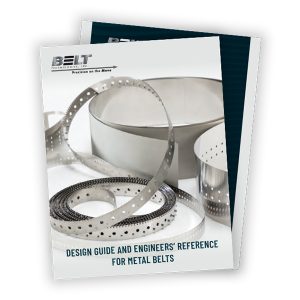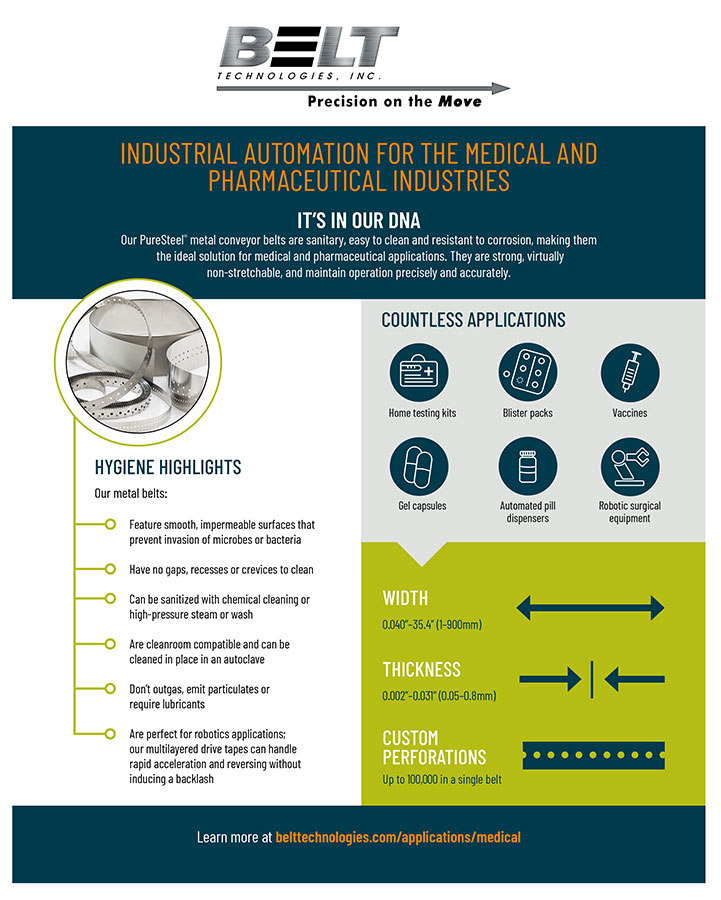Many manufacturers choose stainless steel conveyor belts for the inherent benefits of the metal. These belts are ideally suited for challenging environments and operating conditions due to their resilience and versatility. The physical properties of stainless steel and its many alloys can be leveraged to do more than just move product. In this article, we explore how these inherent properties have been used to improve production efficiency across multiple manufacturing industries.
Optimize Conveyor Systems for Extreme High- or Low-Temperature Applications
Excellent thermal conductivity gives stainless steel the ability to withstand extremes in temperature as well as rapid fluctuations between temperatures. Not only can stainless steel conveyor belts reliably transport product through exceedingly high or low temperature environments, they also have the ability to uniformly transmit thermal energy. In food processing applications, stainless steel conveyor belts can be utilized as a surface on which food products are cooked or frozen. This allows for a simpler, more efficient system design that increases product throughput and quality.
Achieve Higher Product Quality for Extruded Plastics and More
The smooth, heat-resistant surface of stainless steel is optimal for casting thermoplastics. With stainless steel, there are no unwanted textures to affect the product surface as it cools. Other belt materials—such as wire mesh, rubber, or plastic—typically have seams or other surface imperfections that leave marks on products. These marks increase the rate of product loss. Stainless steel is incredibly resilient to physical damage, meaning it is not liable to develop dents or scratches over time that leave impressions on extruded materials. Because of its high resistance to heat, the belt will remain unaffected by the high temperatures of the extruded product and maintain its shape and positional accuracy throughout its operating life.
Maintain Clean-Room-Ready Conditions with Easy Cleaning and Hygienic Surfaces
Metal belts are an ideal choice for applications where cleanliness is a primary concern. Rubber, plastic, and wire mesh belts can contaminate products with undesirable smells, particles, or bacteria. Stainless steel is relatively impermeable to harmful microbes and can easily be cleaned by a wide range of methods, including high-pressure wash, high-pressure steam, or chemical cleansers. In addition, stainless steel conveyor belts do not generate particulates, do not require lubrication, and do not outgas. They are highly beneficial for maintaining clean room environments or for use in applications where contamination must be prevented on a molecular scale, such as vacuum deposition.
The versatility and durability of stainless steel belts can best be leveraged to your advantage by working with an engineer who is experienced in developing custom automation solutions. Maximize your efficiency and contact Belt Technologies today.



